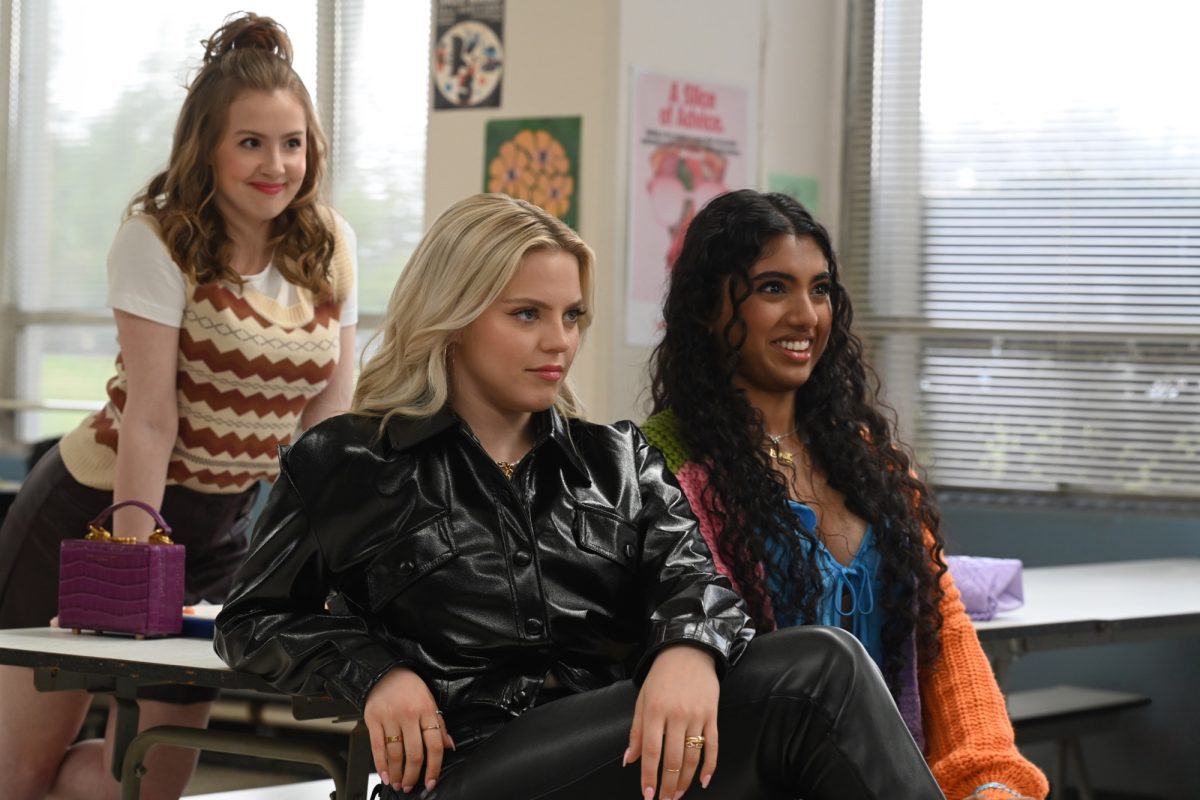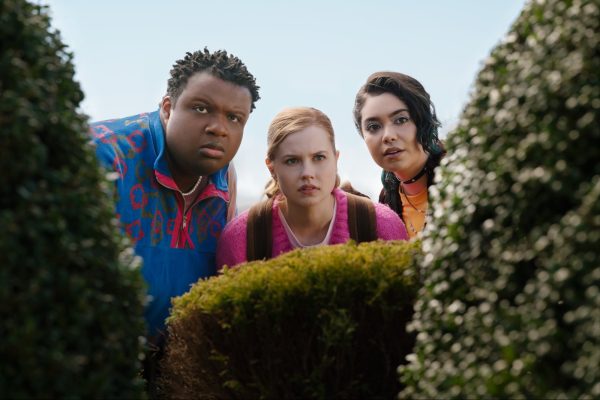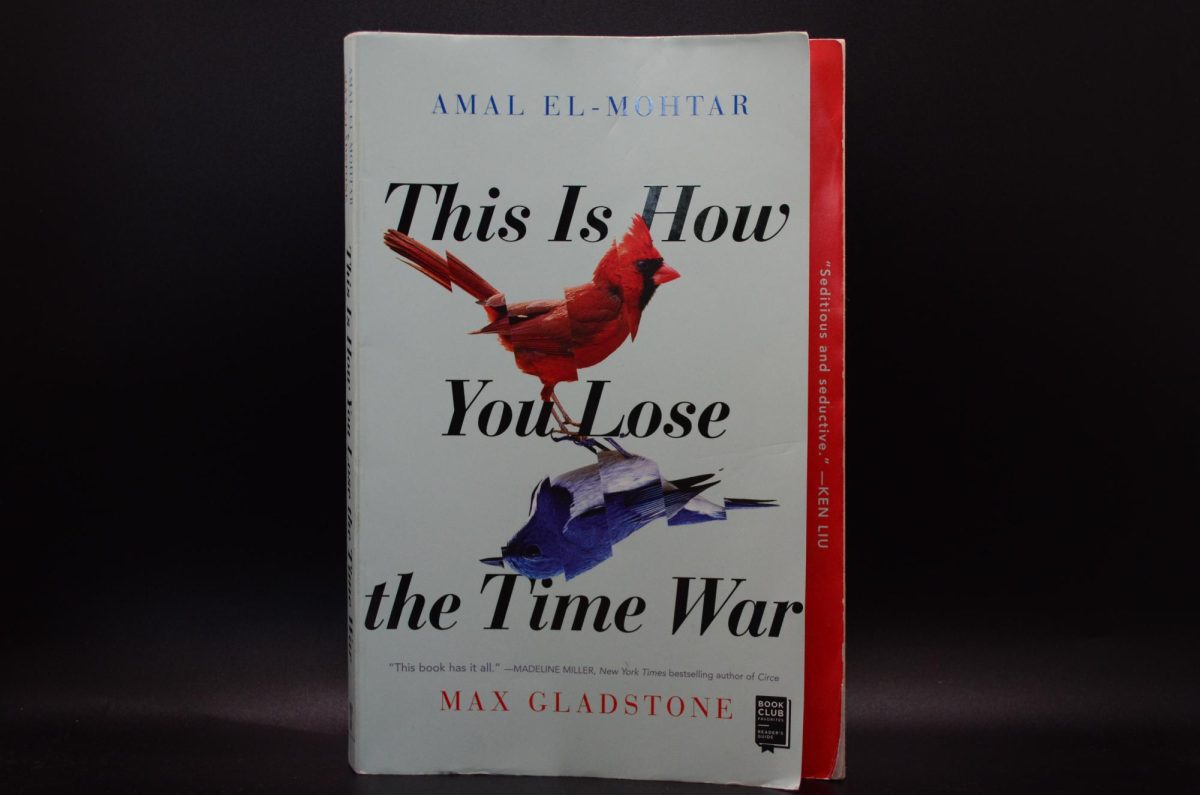“Mean Girls” (2024) hit theaters on Jan. 12 of 2024, nearly 20 years after its predecessor, “Mean Girls” (2004). Although the film’s release ushered in a new year of films, its content was anything but new. Based on a Broadway musical (“Mean Girls”) based on a movie (“Mean Girls”) based on a self-help parenting book (Queen Bees and Wannabes), the movie offers a near identical—and somewhat uninspired—iteration of the same old story: “Gee, girls sure can be mean.”
To its credit, but also to its detriment, the film stays near unerringly faithful to its source material. Not such a surprise considering Tina Fey, the mind behind the script, wrote not only the original movie but also the Broadway musical. The plot will be familiar to most; “Mean Girls” (2004) has become a cult classic, a hallmark of the coming-of-age genre and mandatory-viewing at slumber parties across the country.
Its opening number, “A Cautionary Tale,” sets the stage. Foreshadowing much? Minutes later, the audience is swept to Kenya, where Cady Heron, portrayed by Angourie Rice, longs for experiences beyond her isolated life with her researcher mother, portrayed by Jenna Fischer. She gets exactly her wish, as the homeschooled teen trades one isolating wilderness for another—high school.
Rice nails the naive outsider—lost, confused, but oh, so sweet. Fortunately, Janis Sarkisian and Damian Hubbard (portrayed by Auli’i Cravalho and Jaquel Spivey, respectively), swoop to the helpless lamb’s rescue. The duo performs the fiery “Apex Predator” and introduces her to the law of the jungle: North Shore High School is a food chain, and there can only be one at its pinnacle. Cue Regina George, Queen of Beasts.
Rachel McAdams, the original on-screen queen bee, left big shoes to fill, but Reneé Rapp took on the challenge (facilitated by her history starring as Regina George on Broadway). Rapp brings the iconic character back to life, characteristically leaving supporting characters and audience members equally perplexed: Do you want to be her or be with her? Both.
In spite of Sarkisian and Hubbard’s warnings, Heron is hapless to her magnetism as Rapp enfolds Heron into her inner circle, the Plastics. Other Plastics include ditzy Karen Shetty (Avantika) and George’s right-hand-woman, Gretchen Wieners (Bebe Wood). Avantika brings all the sexually charged inanity of the original’s Karen Smith and Bebe Wood effectively captures the idolization rooted in insecurity of the original Wieners. However, both performances fall somewhat flat, as the script relies almost exclusively on the one-liners from the original film (yet some crowd-favorite and highly quotable dialogue was dropped along the way).
Heron, predictably dizzied by the complex dynamics of female friendship, makes a few faux pas. Not only is she unforgivably interested in George’s ex (Aaron Samuels, portrayed by Christopher Briney), she also makes the mistake of divulging that crush to Wieners. As Samuels, Christopher Briney gives a somewhat lackluster performance. For a lead in a musical, he doesn’t do much singing. None in fact. However, even the original Aaron Samuels was more of a plot device than anything, so we can’t really blame him. This is a movie about mean girls after all. And, as a plot device, he delivers. When Wiener’s tattles to George, she retaliates, provoking Heron’s transformation into her own personal saboteur with the singular goal of toppling her throne to take Samuels for herself. Things devolve into chaos and hurt. This is a cautionary tale after all.
Plot similarities aside, directors Samantha Jayne and Arturo Perez Jr. essentially recreate scenes from the original for the non-musical segments, resulting in uncanny parallels between the two films. However, some creativity, and really the primary distinction between this film and the original “Mean Girls,” arises within the musical sequences. Take “Someone Gets Hurt,” a jaw-dropping solo from Rapp (reminding you of her musical theater background and career as a singer/songwriter). Unconventional camera angles add drama to the already arresting number. Taking advantage of this being a screen adaptation, the directors provide angles that could never be obtained on stage, panning through a party frozen in time, drawing attention to the film’s primary love triangle. With the addition of costuming and make-up, a doe-eyed Cady Heron is in marked contrast with a predatory Regina George.
Although the film offers little in terms of originality, producers took this opportunity to incorporate more diversity into its cast, as well as to remove some of its more outdated jokes. The main appeal, and distinguishing factor, of the film is its status as a musical remake. Although 14 songs were cut from the Broadway show for the on-screen adaptation (reducing the runtime from the stage production’s two and a half hour runtime to just 112 minutes), “Mean Girls” still boasts 17 musical numbers (adapted for the screen by Jeff Richmon and Nell Benjamin, the composers of the original soundtrack), some far more memorable than others. Vocal performances were excellent all around, with a cast packed with musical theater powerhouses. In spite of this, some of the numbers are, quite frankly, forgettable.
“Mean Girls” (2024) certainly doesn’t hold up on its own, and doesn’t hold a candle to its predecessor in terms of rewatchability, but the nostalgia of the original “Mean Girls” combined with the elaborately choreographed dance numbers and a few stand-out songs makes it a fun enough watch. However, with a not-so-high-school-aged cast, rushed plot (to allow time for mostly mediocre music), blatant brand deals and the lazy and not especially compelling incorporation of TikTok, the viewer is left wishing the movie had taken some of George’s advice, “You could be really hot if you change like everything.”











